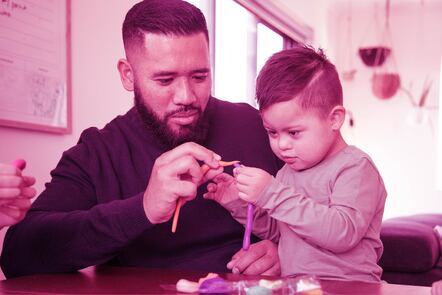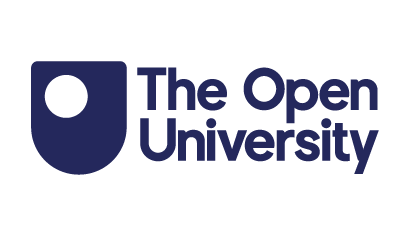Start your career in EYFS: How to become an early years practitioner
Thinking of working in early years education? Learn everything you need to know in this article, with expert input from Sheona Gilmour, an Early Years Specialist Language Adviser.
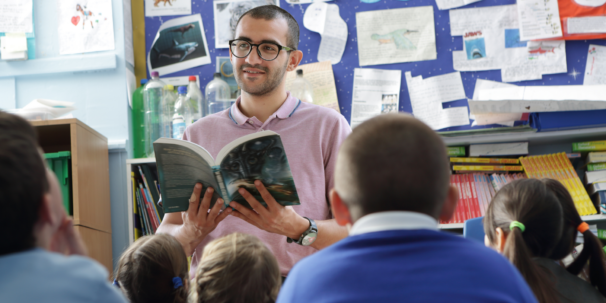
By Rhiannon Wardle
Do you love the idea of working with young children and laying out the foundation for their futures? If so, working in the Early Years Foundation Stage, also known as EYFS, might be the perfect career path for you.
The first years of your life are the most important in dictating your growth and development, and research shows that they even impact your future life trajectory, including your health, attainment and earning potential. That’s why child development during the early years is so important – it’s a time when the brain creates complex neural pathways at a staggering speed.
If this crucial stage of a child’s development fascinates you, it’s worth doing some research into a career as an early years practitioner. This article is a great place to start, as we’ll be discussing the EYFS framework and curriculum, the role of an EYFS educator, how to become a practitioner, career advice, and more.
Not to mention, we’ll have some top tips from Sheona Gilmour, an Early Years Specialist Language Adviser from the British Council, throughout the article.


What is the Early Years Foundation Stage (EYFS) framework?
First things first, it’s important to understand exactly what the EYFS encapsulates. Early childhood covers ages zero to eight years old, but the first three years in a child’s life are the most essential when it comes to biological, emotional, physical and social development.
The EYFS sets standards in England for the learning, development and care of children from birth to age five, and all early years providers must follow these standards. The framework was introduced in 2008 in response to evidence that demonstrated how important the early years in a child’s life are to their development and future prospects.
Some of the key intentions of the framework include ensuring that children learn and develop well, that they’re kept healthy and safe, and that they obtain the knowledge and skills needed to start school successfully.
Learn more about the early years with a focus on bicultural contexts in our Early Childhood Learning and Development in Aotearoa New Zealand course by Te Rito Maioha Early Childhood New Zealand (ECNZ).
The EYFS curriculum
So far, EYFS might sound incredibly broad. Let’s break it down and talk about the EYFS curriculum, which essentially states what children will learn about.
There are seven areas of learning in the EYFS framework, and the government website points out that children will mostly be taught through games and play.
The areas are:
- Communication and language
- Physical development
- Personal, social and emotional development
- Literacy
- Mathematics
- Understanding the world
- Expressive arts and design.
It will be up to you, as a practitioner, to cover these seven areas in your own EYFS curriculum. You can use Development Matters, official guidance issued in England, to help you plan your lessons.
As explained in our open step on early childhood development, the Development Matters guidance emphasises the uniqueness of each child, encourages active learning and creativity, and highlights the importance of play and exploration.
Read about Professor Helen Bilton’s approach to a curriculum full of outdoor learning and exploration in her guest post, Teaching sustainability and climate change for kids.
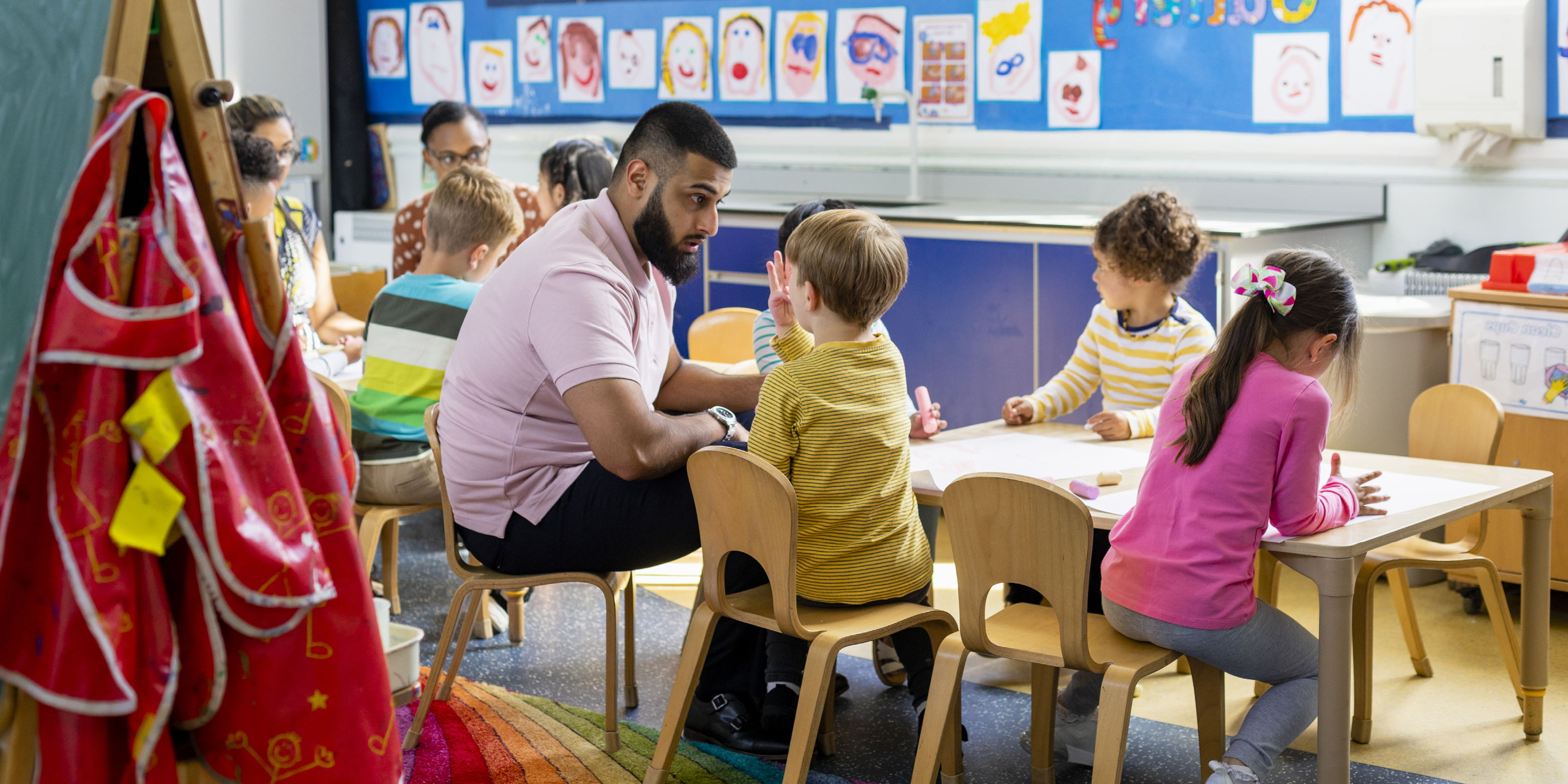
The importance of language learning
Clearly, communication and language is one of the most vital areas of development for children at this age, and success in this area will lead to better performance in other areas such as literacy, social development and understanding the world.
We spoke to Sheona Gilmour about language development in the early years, and asked, how can an early years teacher ensure that children get the best possible start in reading, writing, speaking, and listening?
“Language learning is a prime area of development in early years education and the key to academic success later,” says Gilmour.
“Whether it is the child’s home language, an additional language, or an official language for education, it is vitally important that children get lots of exposure to language to be able to start using it. Getting this good start means lots of storytelling, giving them language in context, and lots of play, where children have the opportunity to make up and tell their own stories.”
“Children at this age have vivid imaginations,” Gilmour adds.
“First comes listening, then speaking, eventually reading, and lastly writing. Teachers can really bring stories alive in a classroom and immerse the children so much they become passionate storytellers themselves. Stories are also cross-curricular so any subject can be taught in a meaningful context.”
To learn more about helping children develop language, you can join the English in Early Childhood: Language Learning and Development course by the British Council, with Sheona Gilmour as the lead educator.
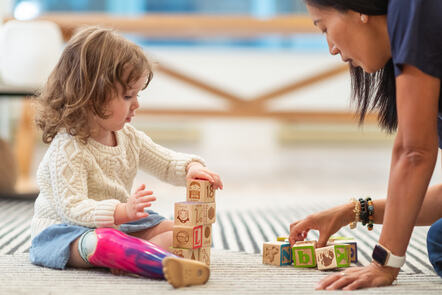

What’s the role of an early years practitioner?
Now you know that the aim of the EYFS framework and curriculum is to provide children with a great start in life, we can dive more into the role of an EYFS practitioner.
Below, we’ve listed some of the activities you’re likely to find yourself doing on any given day in your role as an early years practitioner. This is not an exhaustive list, but might help you decide whether the job is right for you.
Activities may include:
- Looking after the physical needs of children (feeding, potty training, etc)
- Reading stories and picture books
- Offering messy playtime
- Managing the health and safety of children
- Monitoring the progress of children
- Taking children on trips
- Using videos to encourage literacy
- Encouraging physical activity
- Modelling good communication skills
- Teaching mindfulness to kids
- Playing numeracy games.
It’s also important that an early years practitioner is able to offer developmental support to children with disabilities. This may include offering specialised care such as therapeutic services, assistive products like hearing aids, or adjusted curriculums.
You can learn more about this in our Inclusive Education: Understanding Special Educational Needs ExpertTrack by The Open University.
Should you become an EYFS practitioner?
Maybe you’ve now decided that you’re interested in pursuing this career. You love children, you enjoy teaching, and you’d like to make a difference in the lives of others.
But how do you know whether you’re right for the job, and are there specific qualities or skills you need to have in order to thrive in this career?
We got some advice from Gilmour, who has years of experience working in early years education.
“Early years is the most complex and challenging of life stages yet is the most rewarding to teach. In Finland, early childhood education gets the recognition it deserves, and attracts top graduates,” she says.
“This career combines child development, education, and psychology – studying educational greats such as Vygotsky, Froebel, and Bruce to name just a few. If you are passionate about very young children and deeply care about every child getting the best possible start in life, this foundational stage is for you.”
“In terms of skills, you need to be creative, fun-loving, and analytical, so you can find ways to build on a child’s natural curiosity to learn and discover.”
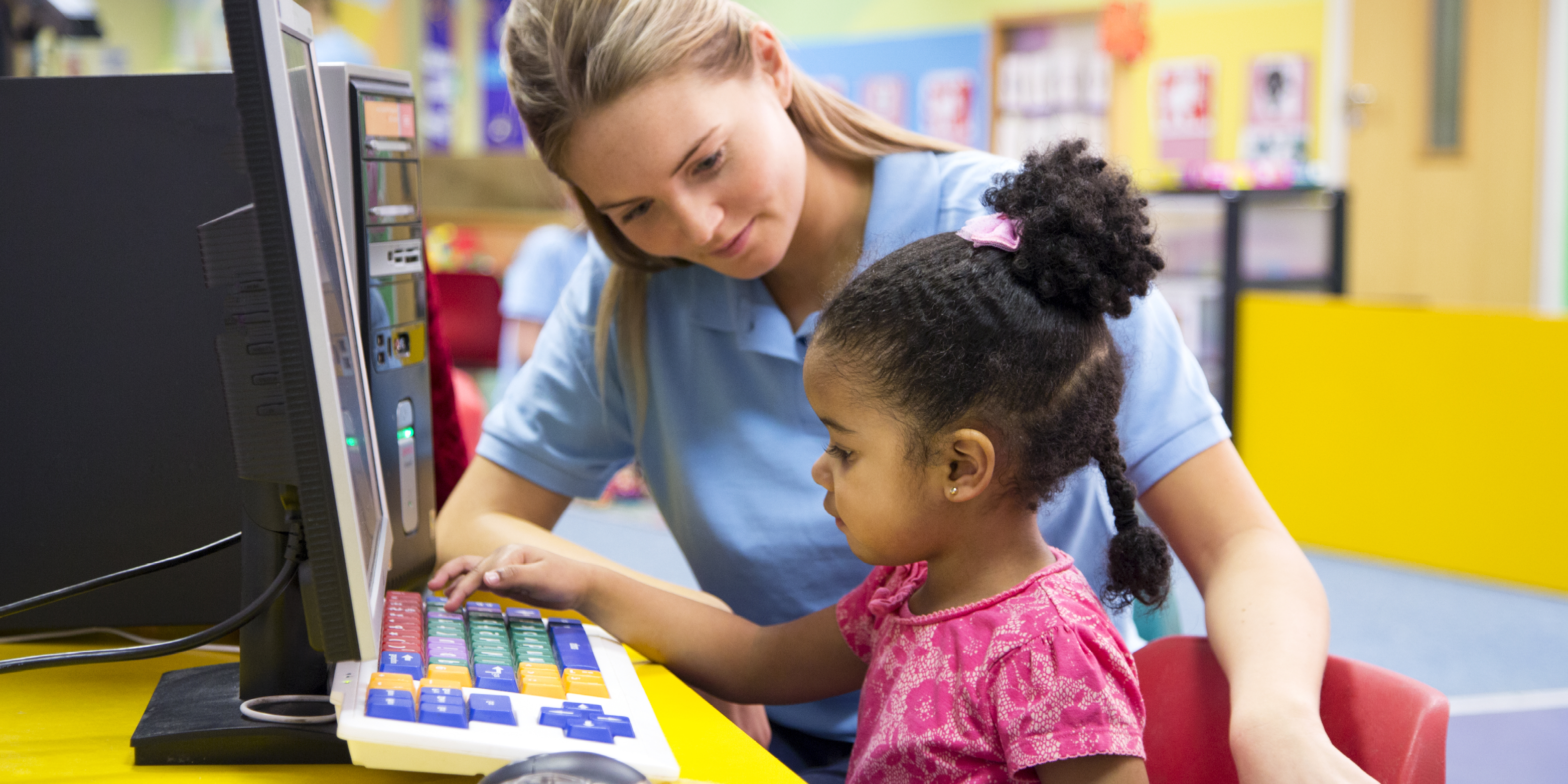
Top tips for early years educators
Everyone wants to feel prepared when starting a new job, and it feels extra important to plan and manage expectations when you’re going to be working with young children in their formative years.
Who better to get advice from than early years educators themselves? Below, we’ve included some advice for those just starting out in early years education.
Sheona Gilmour, Early Years Specialist Language Adviser at the British Council.
“My ‘top tip’ for a new early years teacher is to place the child at the heart of everything they do. Observe the children, to understand their development, and interests, and plan based on this, and their development stage. This will build your relationship with them and their trust in you.”
Catherine Stewart, Head of Early Years at the British Council School in Madrid, transcribed from our How young children learn best video.
“It’s the teacher’s responsibility to plan interesting play-based activities that all children find interesting. So it’s very important that you know your children very well and find out what interests them first. You may think that the class likes dinosaurs when perhaps they prefer cars, dolls, or something else.”
“It’s very important that you see what the children enjoy using and that you plan activities around those sorts of areas as well. Challenge, of course, is very important. Children must be learning at their ability-level as well so that they are challenged or are helped if they have some difficulty.”
Helen Bilton, Professor of Outdoor Learning and Play at the University of Reading, taken from our Supporting Successful Learning in Primary School course.
“Question everything that’s done. Just because it’s always been done, doesn’t make it right nor helpful to children. For example, playtime, ability groupings or an end-of-lesson bell – why do we have these things? How many issues are caused by them?”
“How about breaks being based on when the teacher thinks the children in their class need a break? What about lunchtimes being in small groups and not in a noisy, overcrowded dinner hall? How about the school playground being full of interesting things, with logs, and material and blocks for building with?”
“Education is about process not product. Learning isn’t simply about an end product – like a painting, a piece of writing, or a test. It’s about how people approach learning, their persistence, their logic and so on. You don’t grow by being measured.”
How to become an early years practitioner
So what are the steps you need to take in order to become an early years practitioner? In this section, we’ll run through everything you need to know about qualifications and training.
Educational qualifications and degree
First things first, you need GCSEs in English, Maths and Science at grade 4 (C) or above in order to train as an early years educator.
Then, you’ll need a level 3 qualification, whether that’s A-levels, a BTEC or NVQ. This qualification doesn’t need to be education-related, but it might benefit you to study subjects like child development, psychology or education studies.
To qualify as an early years educator, you will need an undergraduate degree. Some people opt to do an early years degree straight out of their level 3 qualification, but others take an unrelated degree and then later decide to start their teacher training.
Teacher training for EYFS
For those with an unrelated degree already under their belt, the best route to get Early Years Teacher Status (EYTS) is to do Early Years Initial Teacher Training, a one-year postgraduate course that’s fully funded by the government. An additional £7,000 is available to support training, and you’re often able to study and work at the same time.
Training doesn’t just stop once you’re fully qualified, however.
“The next steps for any newbie early years teacher would be to continue their professional development through all the online resources available”, suggests Gilmour.
This, she says, includes, “taking microcredentials on FutureLearn, following Early Years TV interviews which are free and attending online summits such as Kathy Brodie’s Spring Summits.”
“If we want the children in our care to be lifelong learners, we need to model the behaviour and be lifelong learners ourselves.”
The difference between EYTS and QTS
You may have heard of Qualified Teacher Status (QTS), and are wondering what the difference is between this typical teaching qualification and EYTS.
While both of these qualifications enable you to teach young children, there is a big difference. Early Year Teacher Status specialises in supporting children aged 0-5, whereas Qualified Teacher Status specialises in primary school students.
While those with EYTS can teach in a variety of early years settings, such as nurseries and pre-schools, they would need to also obtain QTS in order to work in a state school, despite being technically qualified to teach those of reception class age.
Some schools do hire those with EYTS, but they must be an independent school or academy, and even then, it’s up to them whether they hire you or not. This isn’t to say that you can’t rise up the career ladder if you have EYTS – you’re still able to move into senior roles, just not as a teacher.
So, if you’re sure you want to focus on very young children, and perhaps want to focus on nurseries or childminding, gaining EYTS is perfect for you, but you might want to gain QTS if you’re set on working in state primary schools.
Can’t decide? Take a look at our article on how to decide on a teaching career.
Where can you work as an early years educator?
There’s not just one kind of role you can take as an early years educator. You can choose a role that suits your needs and ambitions. For example, do you want a 9-5 job? Do you want to work in a nursery, school, or from home? Do you want to pass on your passion for the early years to other educators?
Below are some of the roles you might be interested in
- Nursery teacher
- Nursery manager
- Primary school teacher
- Play therapist
- Early years educator at university.
The average salary for an early years educator
The National Careers Service website says the average salary for an early years practitioner in the UK is £25,714 for someone starting out, and £36,961 for someone with more experience.
Keep in mind, however, that this salary will vary depending on your specific role. For example, a therapist is likely to earn more money than a nursery teacher once they’ve gained some years of experience.
Final thoughts
Hopefully, this has been a useful and informative guide for those hoping to work with young children as early years educators. As you’ve discovered, this is a rewarding career path with plenty of opportunities for different roles and responsibilities, so the path is your own to forge.
Already on your way to becoming an early years practitioner or teacher? Feel more prepared with our Preparing for Teaching course by Manchester Metropolitan University, or read our article about teaching courses you can take to upskill in more unique areas.
Good luck!



